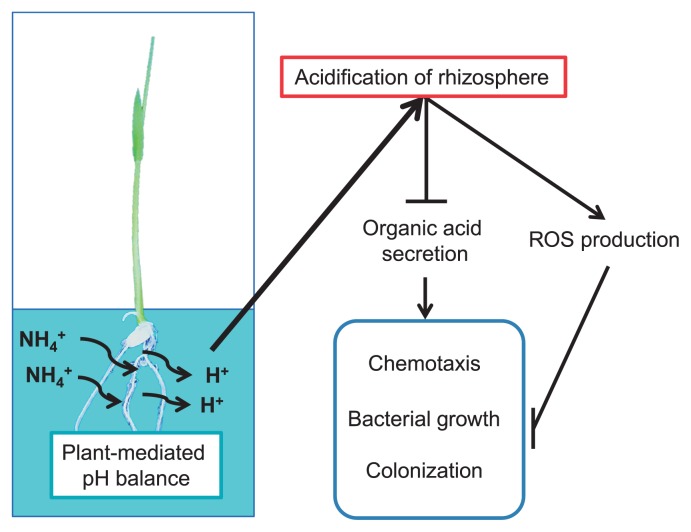Fig. 7.
Proposed model for the suppression of bacterial colonization of rice roots by acidification with NH4+
Following the application of NH4+, rice plants induce a H+ efflux to maintain the pH inside their cells. The consequent acidification of the rhizosphere suppresses the secretion of chemotactic substrates, including malic acid, by the roots. As a result, the growth of bacteria, such as B510, is markedly suppressed. Moreover, acidification induces the production of ROS, including H2O2, by the plant roots. This suppresses colonization by endophytic bacteria, such as B510.

